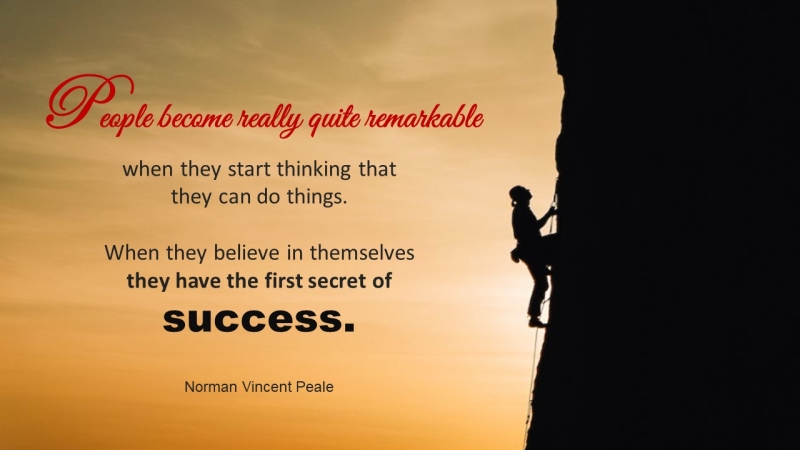
The Power of Small Actions: How Tiny Steps Can Lead to Big Results
WE OFTEN DREAM BIG, SET OUR GOALS HIGH, AND ASPIRE TO GREATNESS. However, the journey to achieve these goals can sometimes seem daunting and insurmountable. It’s easy to get overwhelmed and discouraged, causing us to give up before even taking the first step. But what if I told you that taking small actions can lead to significant results?
Why Small Actions Matter
Taking small actions is essential in achieving our goals, as it can help us overcome procrastination and fear of failure. When we set significant goals, knowing where to start or how to get there can be challenging. We may feel overwhelmed by the enormity of the task, leading to inaction.
However, breaking down these large goals into small, actionable steps can make it easier to get started. It helps us focus on the task at hand and builds momentum, leading to more significant actions over time.
Small actions can also help us build confidence and motivation. Setting realistic goals and achieving them gives us a sense of accomplishment, boosts our self-esteem, and provides the motivation to take on more significant challenges.
Setting Realistic Goals
Setting realistic goals is crucial to achieving our desired outcome. It’s essential to start with goals that are manageable and within our reach.
As we accomplish these small goals, we gain the confidence to tackle larger ones. By breaking down our big goals into smaller, achievable ones, we are setting ourselves up for success.
Identifying Small Actions
Identifying small actions that will lead to significant results can be challenging. It requires breaking down larger goals into smaller, actionable steps. To identify these steps, it’s crucial to understand what needs to be accomplished clearly. Consider the following steps:
- Identify the overall goal
- Break down the goal into smaller steps
- Evaluate each step and determine if it can be broken down further
- Determine the specific actions needed to accomplish each step
It’s important to remember that the smaller the action, the more manageable it will be. We can confidently move forward by identifying these small actions, knowing that each step brings us closer to our goal.
The Benefits of Taking Small Actions
Taking small actions has numerous benefits that go beyond just achieving our goals. Some advantages can be seen when people consistently take baby steps:
- Builds momentum: When we take small actions consistently, we build momentum and create a sense of progress. This can be a tremendous spur to keep going and accomplish even more.
- Builds confidence: Achieving small wins can help make our confidence and belief in ourselves. It shows us that we can achieve our goals and help us overcome self-doubt.
- Develops discipline: Consistently taking small actions requires discipline and can help us develop this critical skill. By building discipline, we can apply it to other areas of our lives and achieve even more success.
- Reduces being overwhelmed: Large goals can often feel overwhelming, but by breaking them down into smaller actions, we can reduce this feeling of overwhelm and make the goal more manageable.
Examples of Small Actions
Small actions can take many forms, depending on the goal we are trying to achieve. Here are some examples of small actions that can lead to significant results:
- Exercise for 10 minutes each day
- Read one page of a book each day
- Write 100 words each day toward a larger writing project
- Practice a new skill for 15 minutes each day
- Save $5 each week towards a more extensive financial goal
Staying Motivated When Taking Small Actions
It’s important to remember that success is only achieved after some time. It takes time, dedication, and hard work. But by taking small actions consistently, we can achieve our goals and realize our dreams.
One way to stay motivated when taking small actions is to visualize the result. Imagine how you will feel when you achieve your goal, and use that as motivation to keep going. Focus on the positive outcomes and keep pushing forward.
Having supportive relationships can be a great source of inspiration. Find a support system for individuals who are also working towards their goals. Share your progress and celebrate each other’s successes. A support system can motivate and encourage us to keep taking small actions toward achieving our goals.
It’s also important to stay flexible and open-minded. Sometimes, the path to achieving our goals may take work. There may be detours and roadblocks along the way. But by staying open-minded and flexible, we can adapt and find new ways to achieve our goals.
Building Consistency and Habits
Consistency is critical in achieving significant results. By taking small actions consistently over time, we can build habits to help us achieve our goals. Small, daily actions can add up and significantly impact over time. If you want to run a marathon, you should train for it by running even a short distance daily. As you build up your endurance, increase the distance gradually. Before you know it, you can run a full marathon.
Overcoming Obstacles
Taking small actions does not mean the journey will be free of obstacles. There will be problems and setbacks along the way, but staying motivated and getting past them is essential. When faced with difficulties, it’s important to look at the situation and determine what to do next. Consider the following steps:
- Identify the challenge
- Determine the cause of the challenge
- Develop a plan to overcome the challenge
- Take action
By taking small actions toward overcoming obstacles, we can stay motivated and continue to move forward.
Celebrating Small Wins
Celebrating small wins is crucial in maintaining motivation and building confidence. It’s essential to acknowledge and appreciate our progress, no matter how small. Celebrating small wins can also help us stay focused on the end goal and motivate us to continue taking small actions toward achieving our goals.
Conclusion
In conclusion, the power of small actions should be considered. Taking small, consistent steps toward our goals can lead to significant results over time. Setting realistic goals, figuring out small steps to take, building consistency and habits, getting past problems, celebrating small victories, imagining the result, surrounding ourselves with people who think like us, keeping an open mind, and being flexible. If we put in the time and effort, we can accomplish anything. Remember, “A journey of a thousand miles begins with a single step.” So, take that first step and keep moving forward toward your goals.
CLICK THE IMAGE TO LEARN MORE






